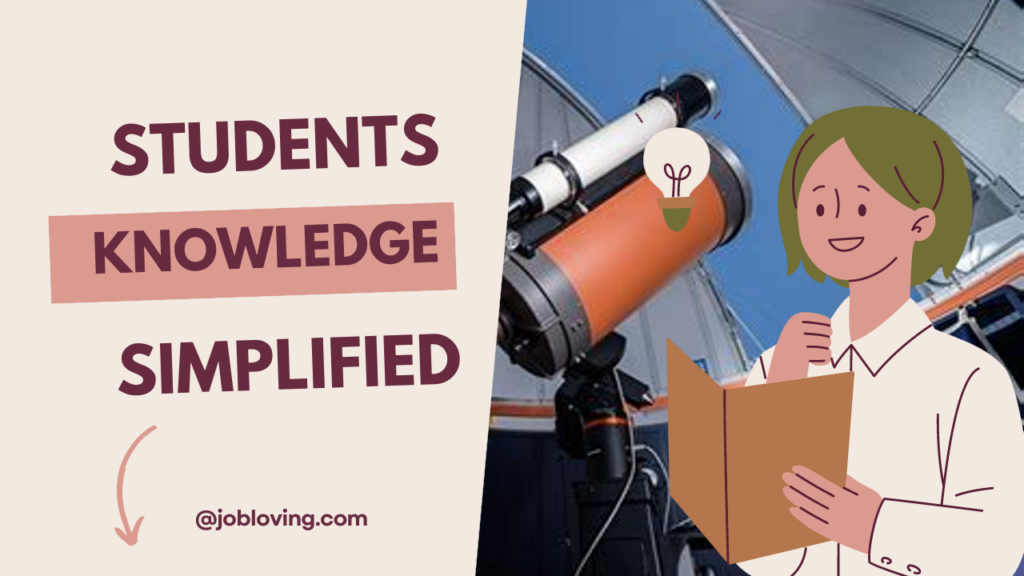Exploring the Cosmos: The ABCs of Studying Astronomy at University
Have you ever gazed up at the twinkling stars and wondered what lies beyond our little blue planet? If your heart races at the thought of distant galaxies, black holes, and the mysteries of the universe, studying astronomy at university might just be your celestial calling! You will study key aspects of astronomy and astrophysics in greater depth and undergo further training in the use of astronomical instrumentation and software. So, let’s dive into the universe of possibilities that await you!
What You Can Expect from an Astronomy Degree
Before you pack your telescope and stargazing gear, it’s vital to know what studying astronomy entails. Most astronomy degrees intertwine mathematics and physics to provide a robust groundwork for understanding the universe’s complexities.
- Typical coursework covers essential topics such as:
- Theoretical astrophysics: Delve into the underlying physics that govern celestial phenomena.
- Observational astrophysics: Learn how to gather and analyze data from celestial objects.
- Stars and their spectra: Study the life cycles of stars and what their light reveals.
- Relativity and cosmology: Explore the nature of spacetime and the universe’s origin and evolution.
Your academic journey will include early foundational courses like observational astronomy, solar system studies, cosmology, and geochemistry. As you progress, you’ll tackle more advanced topics, employing both optical and radio telescopes, exploring areas like geophysics and even astrobiology. What’s more, the typical duration for an undergraduate program is three to four years, while those seeking a master’s may spend one to two additional years diving even deeper.
Practical Components: Hands-On Experience Awaits!
One of the most exciting aspects of an astronomy degree is the hands-on experience. Astronomy students engage in:
- Learning how to use telescopes, star charts, and computer imaging.
- Participating in research projects, which often become significant assessments in their coursework.
- Observational tests that require analyzing real astronomical data.
Imagine standing under a clear, starry night, collaborating with peers to unravel the universe’s secrets or peering through a telescope to witness the breathtaking beauty of the cosmos firsthand. Yes, please!
Who Can Join This Celestial Adventure?
Wondering if you have what it takes to study astronomy? While astronomy degrees often require strong academic foundations in physics and mathematics, many universities are welcoming to students from diverse backgrounds who have a genuine passion for the cosmos. It doesn’t hurt to have additional sciences under your belt too!
- Entry requirements generally include:
- High grades in physics and mathematics.
- Prerequisite knowledge in basic algebra is usually all you need for introductory courses.
- A curiosity for the universe and a willingness to explore!
Graduation & Career Opportunities: A Bright Future Awaits
Upon graduating with an astronomy degree, you open the door to numerous career opportunities. Common paths include:
- Becoming a research scientist and contributing to groundbreaking discoveries.
- Working as a technical writer to translate complex astronomical concepts into engaging content.
- Taking on the role of an educator, whether as a lecturer or a planetarium director.
- Exploring positions in government agencies like NASA—what a stellar goal!
Not to mention, the skills gained through an astronomy education—critical thinking, analytical prowess, and observational methods—span various fields. Graduates often find roles in meteorology, climatology, aeronautical engineering, and even finance or media!
The Interdisciplinary Nature of Astronomy
Another attractive aspect of studying astronomy is its interdisciplinary appeal. The field naturally overlaps with various scientific domains, granting astronomy graduates the flexibility to navigate several career paths. The operational skills acquired during your studies enable you to contribute meaningfully to fields ranging from environmental science to engineering and technology.
Trailblazers of Astronomy: Inspiration from the Masters
As you embark on this cosmic journey, you’ll join the ranks of esteemed astronomers who changed our understanding of the universe. Think of luminaries like Stephen Hawking and Edwin Hubble. Their contributions signify how studying astronomy has impacted both science and our perception of reality. Who knows? You might be the next great mind to make waves in the field!
A Universe of Learning: More Than Just a Degree
Astronomy education is more than academic pursuits; it’s about cultivating a sense of wonder and inquiry about our universe. Engaging with astronomy fosters a scientific mindset that encourages curiosity, creativity, and the drive to explore the unknown. By becoming an astronomy student, you’ll join a community dedicated to scientific advancement as you discover your very own insight into life, the universe, and everything!
Is Astronomy for You? Final Thoughts
In conclusion, astrology can be a thrilling academic venture that opens cosmic doors to understanding the universe. If you find joy in diving into the intricate workings of celestial bodies and revel in problem-solving and analytical thinking, pursuing this field may be your ideal choice. Astronomy degrees provide an impressive toolkit of practical skills, theoretical knowledge, and motivational opportunities, shaping well-rounded graduates ready to tackle challenges in the scientific world.
You may even find your diploma paving the way for a lifelong career in astronomical exploration, education, and research. And let’s be honest: there’s something utterly enchanting about contributing to the age-old inquiry of what exists out there, beyond our atmosphere.
So, are you ready to take a leap into the unknown and study astronomy? The universe is waiting for you!
If you’re intrigued and want to learn more about specific university programs, course offerings, or career advice in astronomy, dive deeper into resources available online or reach out to your local educational institutions. Your journey among the stars doesn’t have to wait!

